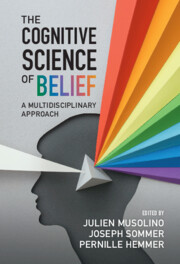Chapter 21 - The Elusive Search for Individual Differences in Myside Thinking
from Individual Differences in Beliefs
Published online by Cambridge University Press: 03 November 2022
Summary
Myside bias occurs when people evaluate evidence, generate evidence, and test hypotheses in a manner biased toward their own prior opinions and attitudes. Myside bias is displayed by people in all demographic groups, and it is exhibited even by expert reasoners, the highly educated, and the highly intelligent. Surprisingly, however, the degree of myside bias shown is not predictable from individual difference variables that we would expect to be associated with it. For example, it is not attenuated by cognitive sophistication, as measured by cognitive ability or thinking dispositions. Another way in which myside bias is an outlier bias is that, in most circumstances, it shows very little domain generality and appears to be very content dependent. Individuals who display high myside bias on one issue do not necessarily show high myside bias on another, unrelated issue. Because of these unusual characteristics, myside bias needs a different type of model – a content-based model, such as those deriving from memetic theory.
Information
- Type
- Chapter
- Information
- The Cognitive Science of BeliefA Multidisciplinary Approach, pp. 465 - 487Publisher: Cambridge University PressPrint publication year: 2022
